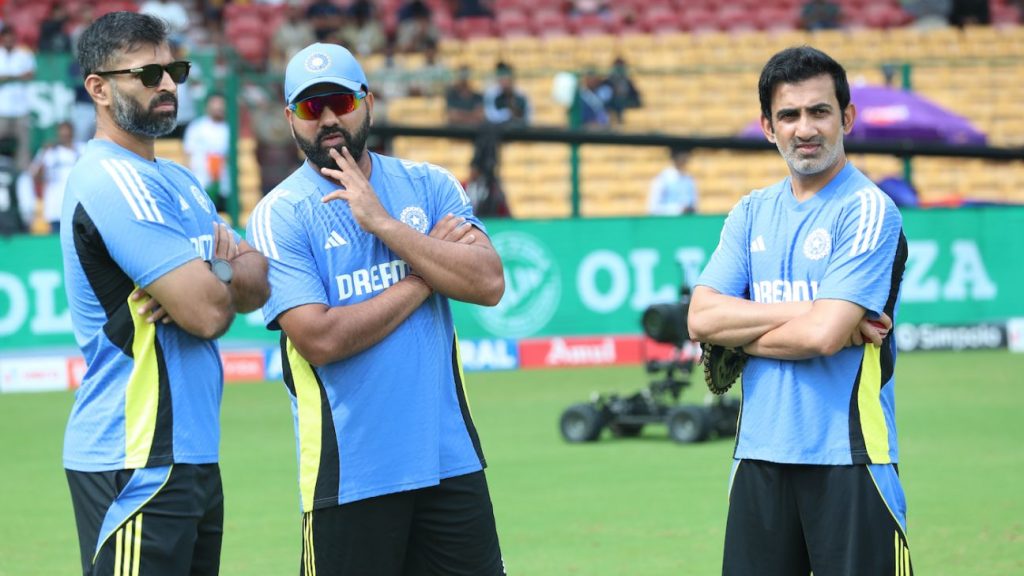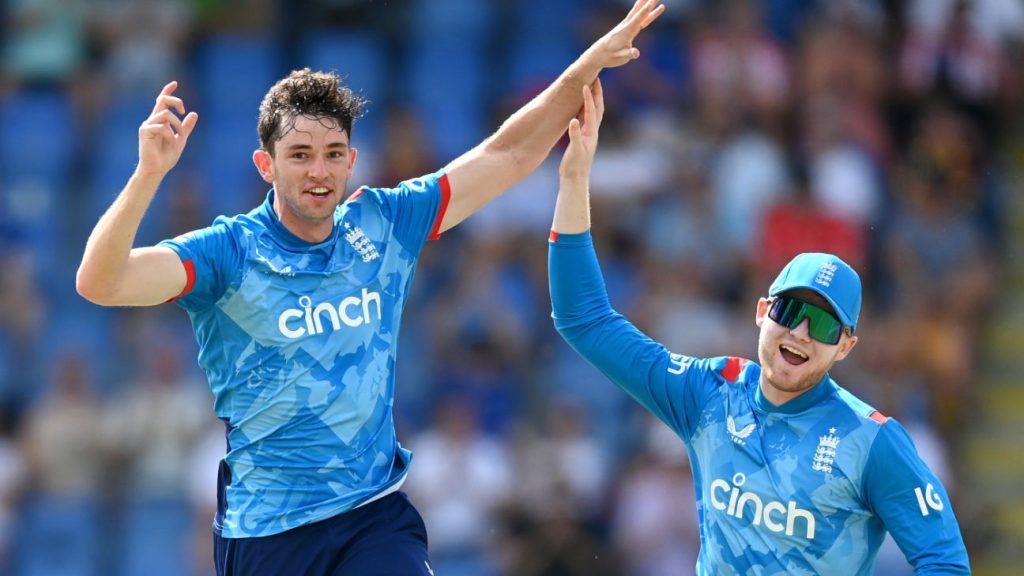Board is hopeful of creating a demographically-reflective regional men's team by the 2027 ODI World Cup

Cricket South Africa [CSA] will host a three-day persity, equity and inclusion (DEI) Indaba (conference) from Friday, with the main aim of identifying a roadmap to ensure a demographically-reflective national men's team by the 2027 ODI World Cup at home.
They will also address issues of representation in the game overall but have changed the labelling of the event from Transformation Indaba to DEI Indaba to reflect an agenda that addresses the cricketing infrastructure in totality and is not entirely focused on a particular race group.
"It is not only about black players but about building a perse structure," Mudutambi Ravele, CSA board member and DEI Chairperson told ESPNcricinfo. "For example, we have looked at the data from the Kwa-Zulu Natal (KZN) province and seen that the number of players of Indian heritage has got less and less. We want to address that. We have looked at Limpopo and there are no white players. We can't have that. We want to address the issues holistically."
The cases explained above are important when contextualised against the backdrop of South Africa's history, demographics, and national representation in cricket. While 84.8% of the population is black African, before readmission in 1992, South Africa fielded all-white national sides. Since then, efforts have been made to reflect the country's other, and most significantly, majority race group, but there was only one black African player in the T20 World Cup 2024 squad - an issue that raised concerns and makes the timing of this conference important.
While CSA has expressed concerns with the lack of black African international players, they also hope to develop the game holistically, especially in places where they can identify gaps in the talent pool such as in Ravele's examples. The KZN province is the area in the country with the largest percentage of people of Indian descent - 9.3% compared to 2.7% countrywide - while Limpopo, the northernmost province of the country, has a 97.3% black African population but still around 2% of white citizens. Both those race groups have historically high participation in cricket and CSA will seek to understand why those numbers have dipped.
However, even their more wide-reaching approach does not take away from the key problem which is the lack of black African representation, that could set CSA back on the agreed annual targets with the country's sports ministry. In 2016, failure to meet targets saw CSA, and three other sporting federations, banned from hosting major events and with 2027 in mind, CSA is keen to demonstrate a strong commitment to change.
When asked why Kagiso Rabada was the only black African in the T20 World Cup squad, South Africa's white-ball coach Rob Walter pointed to the domestic system and asked it to "really up the ante". Broadly, CSA agrees with him. At the time, they recognised that "various initiatives that have been pursued over the years have not yielded the desired results," and now, Ravele said they continue to look at the domestic system to identify where it is lacking.
"We want to look at the pool of players who are available and how we can support them to stay in the pool. There are a number of social issues that affect players from disadvantaged backgrounds."
CSA has also launched a specialised program for black African batters since this is an area of particular need.
Walter will be present at the DEI Indaba, where he will be part of a panel of a discussion with black African batter Khaya Zondo, women's international bowler Tumi Sekhukhune and former selector Patrick Moroney, who served on South Africa's last panel under Victor Mpitsang.
The selection committee was done away with when Walter and Test coach Shukri Conrad (who will not be in attendance as he readies the squad to leave for a two-match series in West Indies) were appointed last January. As head coaches, they were given sole decision-making powers over their squad selections. This is likely to change with some inside CSA pushing for the return of a panel, which Ravele supports. "A panel helps a lot because there are different views and people can think more broadly. There are more ideas," she said.
If the re-introduction of a selection panel emerges as one of the recommendations from the Indaba, it will still need to be ratified by CSA's board but will ultimately take away Walter and Conrad's independence.

The squad Walter picked for the T20 World Cup 2024 was South Africa's most successful and reached the final for the first time, but Ravela would not be drawn into conflating their success with the issue of representation. "The squad did really well, but did they do well because they didn't have black players? I think we should view their performance as a matter of progress, as they have been to the semi-finals several times before."
She stressed that CSA will not revert to stipulating a quota for XIs, as they have done in the past, but remain set on average goals. "For the national teams, we don't put a number of players per event. We want to develop a plan for the year and ask what combinations of players can be used to make sure we are fielding perse teams."
As things stand, South Africa's national teams are required to field, on average over the course of a season, at least six players of colour of which two must be black African. At the provincial level, the same target is expected to be met but at least three of the six players of colour must be black African.
The SA20, in which CSA owns the majority share although teams are privately owned, has no transformation target or even expectation imposed on it and will remain untouched. Ravele hoped that the franchise owners would keep South Africa's segregated history and attempts at redress "in the back of their minds," but so far, the competition is the least representative domestic event. In 2024, there were 13 black African players listed across the six squads, with one - the Pretoria Capitals - having none at all. Of those, only Rabada (MI Cape Town), Junior Dala, Tony de Zorzi (both Durban's Super Giants), Lungi Ngidi, Andile Phehlukwayo (both Paarl Royals) and Sibonelo Makhanya (Joburg Super Kings) played more than one match for their team.
Copyright Notice:
Datavictory copyrights this specification. No part of this specification may be reproduced in any form or means, without the prior written consent of Datavictory.
Link:


